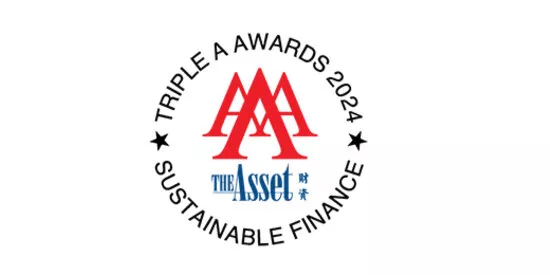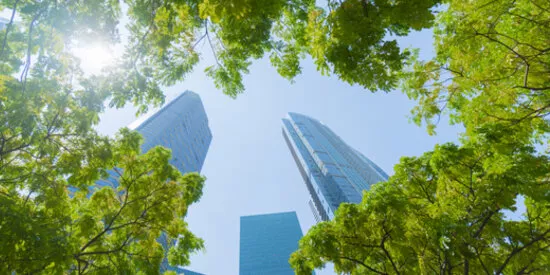
Innovation will be key to Asia’s infrastructure transition
Asia’s ongoing infrastructure deficit means the region’s transition towards a sustainable future will be very different from that of Europe or the US. Yet it needs not be slow. Innovations in technology and finance – together with a rapidly changing mindset – present big opportunities to accelerate Asia’s journey towards a cleaner, low-carbon future.
By Daniel Mallo, Head of Natural Resources and Infrastructure for Asia Pacific at Societe Generale
During the first half of 2021, there has been a significant amount of investment in sustainable infrastructure in Asia Pacific. The region, however, is still at the beginning of this transition. Countries like India and Vietnam are still building new coal-fired power plants that will have 20- or 30-year economic lives – in contrast to Europe or the US, which are more focused on retiring old power plants as cleaner infrastructure comes online.
While Asia’s infrastructure transition will certainly be different to the European or North American model, we do not believe it will be a slow process.
New technology, such as floating solar panels or next-generation wind turbines, will be deployed in Asia first. Distributed energy systems are catching on quickly, and Asian infrastructure owners are beginning to embrace more efficient long-term financing solutions.
These innovations present an enormous opportunity for Asia to leapfrog ahead in sustainable infrastructure development.
Pandemic resilience
One reason why we are so optimistic about the Asian infrastructure sector is its proven resilience in the face of external shocks. The Covid-19 pandemic has caused tremendous disruption everywhere, but infrastructure projects are still being completed, and investment capital is still flowing.
How that capital is being deployed, however, is changing fast. While we have seen infrastructure generally emerge as a big beneficiary of this shift, investors have become much more selective.
Within the Asian infrastructure segment, essential assets that are aligned with the energy transition are well positioned when it comes to attracting capital. Renewables and smart transportation projects, for example, are at the popular end of the spectrum, and are able to access long-term funding on very favourable terms. On the other hand, coal and fossil fuel projects where there is no carbon mitigation are really struggling to engage investors – on any terms.
This desire to “build back greener” is a global refrain, but it is changing the narrative in Asia. We have seen regional banks come under mounting pressure from stakeholders and activists to eliminate coal financing – as Societe Generale did when it committed not to finance coal-fired power plants since 2017. Asian issuers now want to have a good ESG rating, as well as a good credit score, and Asian investors will ask questions about Environmental, Social and Governance (ESG) factors and energy transition plans before they allocate any money to a bond offering or equity raising. Regulators across Asia – led by the financial hubs of Hong Kong and Singapore – are already asking banks what they are doing to reduce their carbon footprint.
Innovative solutions
As Asia works to close its infrastructure gap and investors look for new, long-term assets, some recent developments are worthy of attention.
We are beginning to see areas of excellence emerge. Floating solar power projects, such as the 181-Megawatt Changhua project we financed in Taiwan1 and the 145-Megawatt Cirata Floating Solar project we financed in Indonesia2, illustrate how cutting-edge technology is helping power Asia’s energy transition. Work is already underway on similar projects in Thailand3, in a sign of its enormous potential application across the region.
As wind power becomes more efficient, more countries across Asia are embracing the technology. Societe Generale is leading the way in Vietnam with a USD 173 million green project financing4 for three wind farms, in conjunction with the Asian Development Bank, and supporting Marubeni on the construction of the first large-scale offshore wind farm in Japan5.
Modern technology is also allowing emerging nations to build smarter, more efficient energy systems. The traditional electricity grid is a constraint to industrial development in some markets where new business is growing faster than national capacity can handle. The solution is a distributed energy system, where smaller power plants sustain local end-users more efficiently.
Commercial and industrial distributed generation – such as rooftop solar to power a logistics warehouse6 or a consumer goods factory7 – comes with lower upfront costs and is more energy-efficient, as the power produced is used locally. Major multinational energy companies like Engie and Total SA have seized on the potential, with multiple investments in Southeast Asia and China8.
New asset classes
Distributed generation projects will create entirely new business models and require innovative funding solutions that combine elements of project financing and securitization. As the trend catches on, we could see the birth of an exciting new asset class.
The financial markets hold further potential for Asian infrastructure. This region has traditionally depended on bank funding, but the capital markets are becoming more relevant as savings pools deepen. Energy projects in particular are an ideal fit for the bond markets, thanks to their long lifespans and predictable cashflows, and we are seeing strong demand from institutional investors for project bonds from the renewable energy sector. The Asian infrastructure bond market is still in its infancy, but we see this as an anomaly. It is an efficient funding tool for this kind of asset.
Innovations like these – on both the technological and financial fronts – will be critical to Asia’s transition towards a lower-carbon future and, ultimately, carbon neutrality. Societe Generale stands ready to help our clients in Asia Pacific play their part in this ambitious journey.
1 https://wholesale.banking.societegenerale.com/en/insights/clients-successes/clients-successes-details/news/marubeni-harnesses-sun-and-wind-power-lower-carbon-future-asia/
2 https://news.masdar.ae/en/news/2021/08/03/08/07/masdar-joint-venture-reaches-financial-close-and-starts-construction
3 https://www.reuters.com/business/sustainable-business/thailand-floats-hydro-solar-projects-its-dams-fossil-fuel-supplement-2021-04-20/
4 https://wholesale.banking.societegenerale.com/en/insights/clients-successes/clients-successes-details/news/powering-vietnam-energy-transition/
5 https://wholesale.banking.societegenerale.com/en/insights/clients-successes/clients-successes-details/news/marubeni-harnesses-sun-and-wind-power-lower-carbon-future-asia/
6 https://www.engie-sea.com/news-inner/LOGOS-and-ENGIE-to-build-a-Renewable-Energy-Platform-to-deliver-Solar-Solutions-Across-Asia-Pacific
7 https://www.engie.cn/en/media-center/press-releases/engie-acquired-first-wholly-owned-investment-platform-in-china/
8 https://totalenergies.com/media/news/press-releases/renewables-total-continues-expand-its-footprint-southeast-asia-distributed-solar, https://corporate.totalenergies.cn/en/news/total-and-envision-group-among-tier-1-companies-renewable-energy-distributed-generation-china




